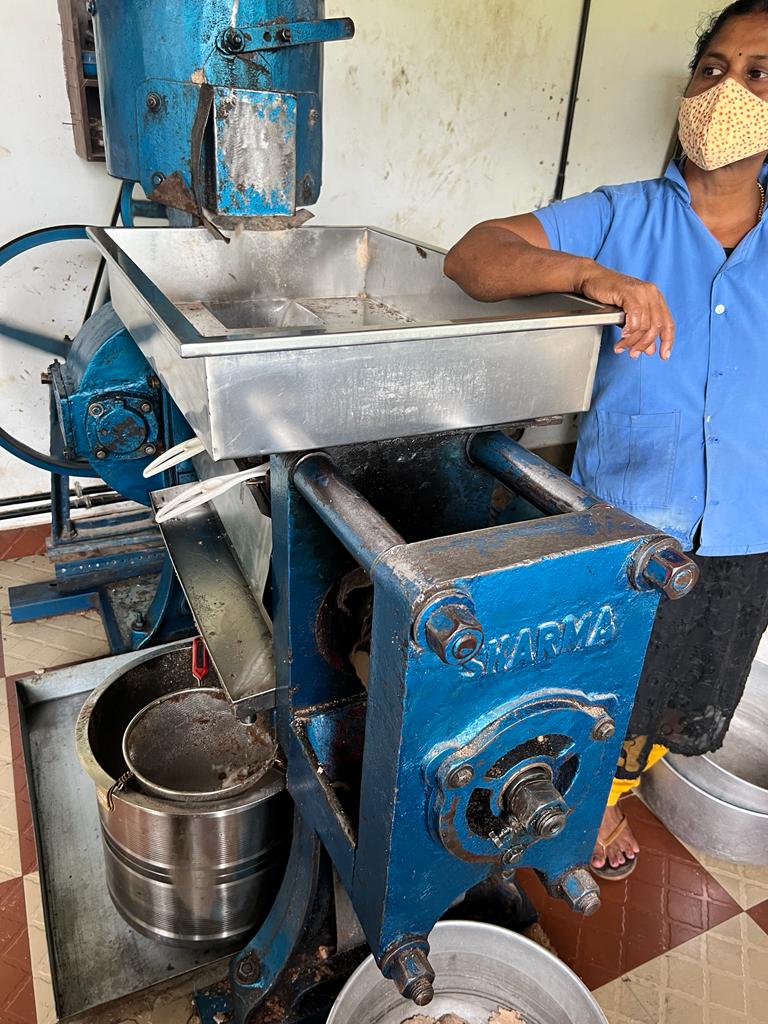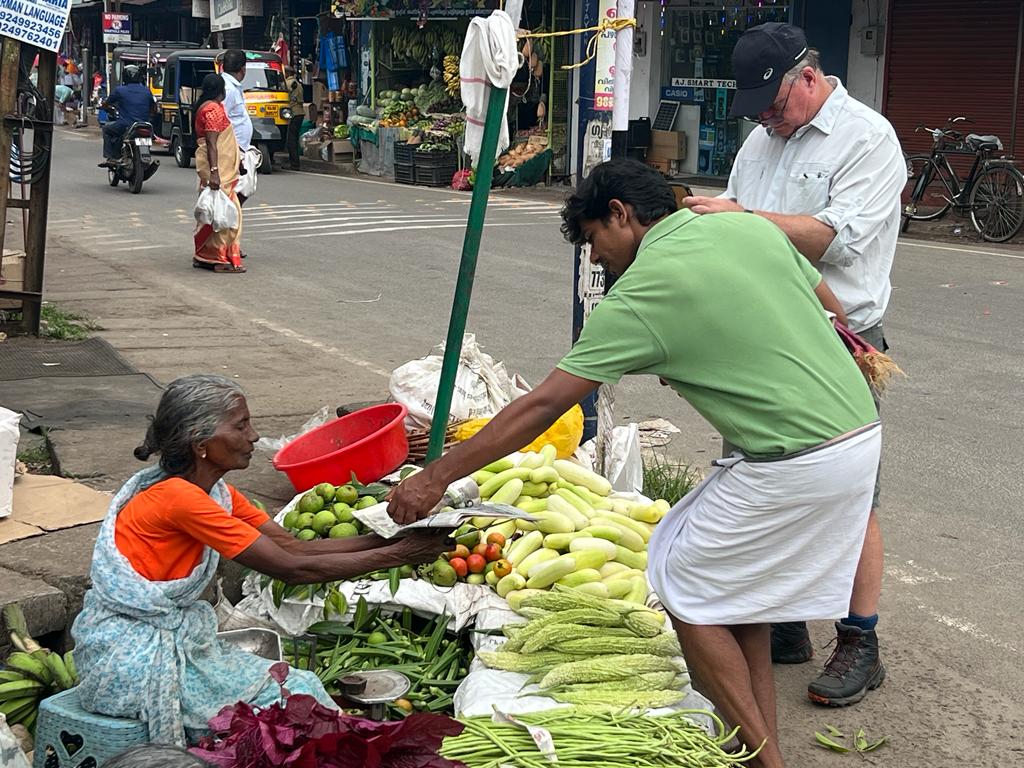In the 1980s, Carlo Petrini ignited a global culinary revolution with the inception of the Slow Food Movement. The Slow Food movement aimed to bridge the gap between farmers and consumers, advocating for a reduction of food travel distance to protect local biodiversity. The movement also strives to achieve the accessibility to good, fair and clean food for all as its goal.
From this movement emerged the concept of 'zero-kilometre food,' a philosophy that emphasizes sourcing and consuming locally produced ingredients to minimize carbon footprints. In Kumarakom, we, the Wonderwerk Kitchen team, have undertaken the commitment to embrace this sustainable approach, drawing inspiration from the lush paddy fields and tranquil backwaters that define the region.
The Beauty of Kumarakom's Bounty
Kumarakom, nestled in the heart of nature's grandeur, is bestowed with a breathtaking array of landscapes, from vibrant green paddy fields to serene backwaters. This bounty provides us with an abundance of locally grown and caught food resources. At Wonderwerk Kitchen, we recognize the importance of preserving this natural abundance and supporting the local community that cultivates and harvests these resources. Our journey toward sustainability begins with a conscious effort to reduce our carbon footprint by sourcing ingredients directly from our local farmers, fishermen, and farmers' collectives.

In this activity of sourcing fresh ingredients from a place laced with a tapestry of canals, our canoes provide a great help in our navigation from one farm to another, from one local market to the next.
If you want to enjoy a canoe cruise in the backwaters, read more about the cruise packages offered by Canoe Kerala
Sourcing Locally for a Sustainable Future
Our commitment to zero-kilometre food is not merely a trend but a genuine effort to ensure a sustainable future for Kumarakom. By sourcing ingredients directly from local farmers and fishermen, we establish a direct connection with those who cultivate and catch our food. This direct relationship eliminates the need for intermediaries, allowing farmers to sell their produce to us without the intervention of middlemen. This not only empowers local producers but also ensures fair compensation for their hard work and dedication.

.jpeg)
Every day, early in the wee hours of the morning, our home cooks, Jesvanth and Sulekha Chechi, set out to collect farm fresh ingredients for the day’s cooking. They collect the freshest produce of the day from the farmers and fishermen and plan the day’s menu based on the collected ingredients—vegetables and fresh local catches like fish and crabs.
Empowering Local Farmers and Fishermen
One of the key aspects of our zero-kilometre food initiative is the empowerment of local farmers and fishermen. By purchasing directly from them, we contribute to the growth of the local economy and foster a sense of community. This approach also provides farmers with a platform to showcase their produce, encouraging sustainable farming practices that prioritize quality over quantity. As we build partnerships with local farmers' collectives, we aim to create a network that supports and uplifts the entire community.
Fresher Ingredients, Healthier Meals
.jpeg)
The core principle of zero-kilometre food is the use of the freshest available ingredients. By sourcing locally, Wonderwerk Kitchen ensures that our dishes are not only delicious but also packed with nutritional value. The reduced travel distance from the farm to the kitchen means less time between harvest and consumption, preserving the inherent flavours and nutrients of each ingredient. This commitment to freshness is not only a culinary choice but a health-conscious decision that benefits our patrons—our brothers and sisters from different parts of the world.

Reducing Carbon Footprint
Embracing zero-kilometre food is our way of contributing to environmental sustainability. The traditional food supply chain often involves extensive transportation, contributing to carbon emissions and environmental degradation. By shortening the distance between producers and consumers, we significantly reduce our carbon footprint. This conscious choice aligns with global efforts to combat climate change and promotes a greener, healthier planet.
Our cooking ingredients are sourced and collected by walking from farm to farm, backyard to backyard. There is no transportation involved that can harm the environment and biodiversity around us. We don’t use any exotic food ingredients that might involve imports and extensive transportation.
Community Engagement and Education
At Wonderwerk Kitchen, our commitment extends beyond our kitchen walls. We believe in actively engaging with the local community and educating them about the benefits of zero-kilometre food. Through collaborations with local schools and organizations and one-to-one sessions with our guests, we aim to raise awareness about sustainable food practices. By fostering a sense of pride in locally sourced ingredients, we hope to inspire others to join us on this journey toward a more sustainable future.
Challenges and Rewards
Transitioning to a zero-kilometre food model comes with its own set of challenges, including establishing reliable supply chains, educating consumers, and adapting to seasonal variations in ingredient availability. However, the rewards far outweigh the challenges. Not only do we contribute to the health and well-being of our community, but we also create a unique culinary experience that celebrates the truly local flavors of Kumarakom.
As Wonderwerk Kitchen celebrates its commitment to zero-kilometre food on its first anniversary, we reflect on the strides we have made toward a more sustainable future for Kumarakom. By sourcing locally, empowering farmers, and reducing our carbon footprint, we hope to inspire others in the hospitality industry to adopt similar practices. The journey toward zero-kilometre food is a collective effort, and together, we can create a world where every meal is a celebration of local flavors, community empowerment, and environmental responsibility.
Are you wondering what is the meaning of the name, Wonderwerk Kitchen is? Read more about us here.

